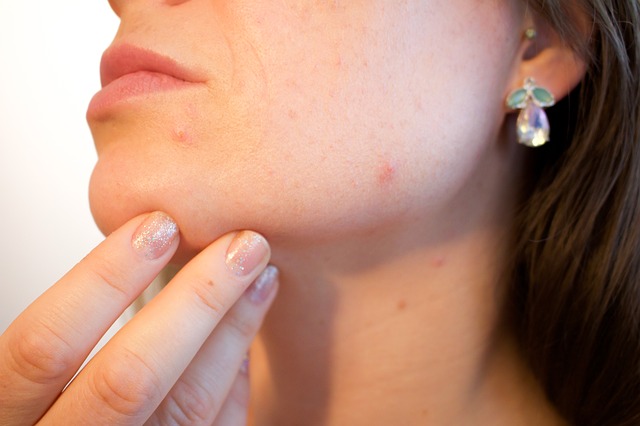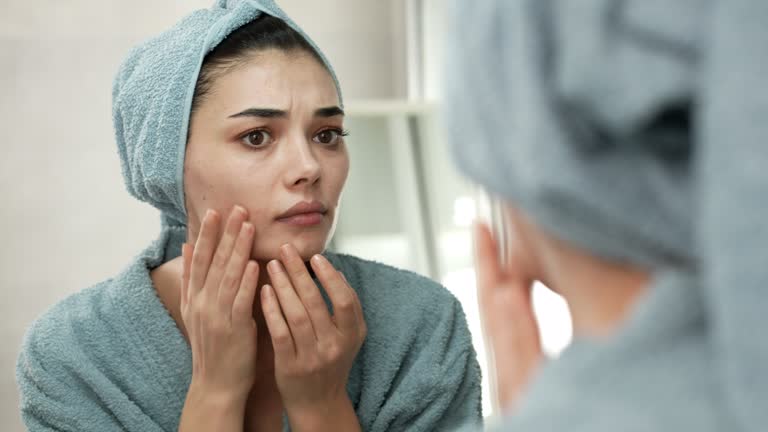Folliculitis During Pregnancy: Understanding and Managing
Being pregnant is a transformative time in a woman's life, filled with joy, anticipation, and sometimes unexpected bodily changes. One such change that some women may experience is folliculitis during pregnancy. This condition, characterized by the inflammation of hair follicles, can cause discomfort and concern for expectant mothers.
The occurrence of folliculitis during pregnancy can be perplexing, as hormonal and physical changes make the skin more susceptible to irritants and infections. Recognizing the early signs and understanding effective management strategies is crucial for ensuring both maternal comfort and skin health.

Recognizing Folliculitis During Pregnancy
For a beautician, it's important to be aware of the potential skin changes that pregnant clients may experience. Signs of folliculitis include red bumps, itching, and tenderness around the affected areas. These symptoms are not uncommon and can appear in areas like the thighs, buttocks, or even underarms.
As a reference, the condition is quite similar to acne, which can also flare up during pregnancy. Both are triggered by changes in hormone levels, increased perspiration, and sometimes a weakened immune system typical during this time. More nuanced details about identifying skin conditions similar to folliculitis can be found in this insightful piece on signs of folliculitis on skin.
Managing Folliculitis: Safe and Practical Approaches
Beauticians should advise pregnant clients to follow skincare routines that minimize irritation and bacterial exposure. Practical steps such as wearing breathable clothing, avoiding tight-fitting garments, and maintaining a clean and dry skin environment can make a significant difference. Discover more about skincare routines to prevent folliculitis specifically tailored for such concerns.
In cases where folliculitis symptoms persist or worsen, consulting a healthcare provider is advisable. They may recommend treatments that are safe during pregnancy or provide additional guidance tailored to the individual's needs.
When to Seek Medical Advice
While home care and preventive measures play a crucial role in managing folliculitis, there are instances where professional medical advice is necessary. For example, if the condition leads to infection or if there's noticeable pain and discomfort, a doctor should be consulted. Learn more about managing skin conditions and when to seek care from resources such as this external guideline on folliculitis management from Medscape.
Pregnancy-Friendly Treatments
It's also imperative to discuss with clients the safety and efficacy of various treatment options available during pregnancy. While topical antibiotics and antiseptics are commonly used, not all products may be suitable for pregnant women. It's important to ensure that any skincare treatments avoid potentially harmful chemicals that could affect both the mother and fetus.
Beyond prescription treatments, incorporating natural remedies and maintaining optimal hygiene may also alleviate symptoms. These include warm compresses and gentle exfoliation with a mild soap to help cleanse affected areas without causing additional irritation.
Maintaining Skin Health Throughout Pregnancy
Ultimately, supporting pregnant clients entails offering advice that keeps their skin healthy not just in the short term but throughout the entire pregnancy. Lifestyle adjustments play a pivotal role; encouraging a balanced diet, adequate hydration, and a suitable skincare regimen serves as the foundation for overall well-being.
For beauticians, this means continually educating themselves about the unique dermatological needs of pregnant women and offering informed suggestions accordingly. Explore more about dealing with skin issues during pregnancy and holistic care from Alberta Health resources.

FAQs about Folliculitis During Pregnancy
Can folliculitis during pregnancy harm the baby?
No, typically folliculitis itself does not pose a direct risk to the baby. However, any severe infections should be addressed promptly to avoid complications.
Are there safe home remedies for managing folliculitis while pregnant?
Yes, many home remedies such as warm compresses and using non-irritating skincare products can safely manage the condition. Always consult a healthcare provider before trying new treatments.
Are over-the-counter treatments for folliculitis safe during pregnancy?
Not all over-the-counter treatments are safe during pregnancy. It's important to review product labels and consult with a healthcare provider to ensure their safety for both mother and baby.

